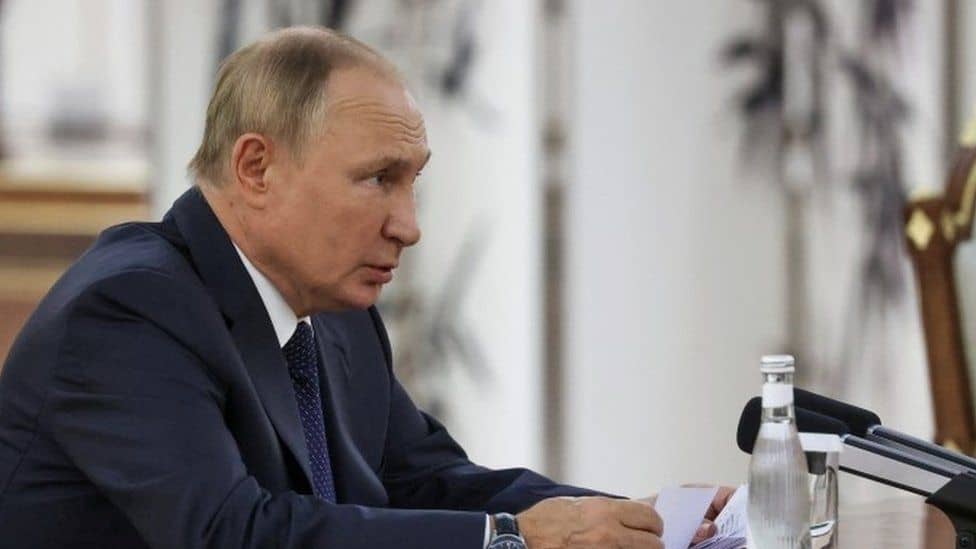The Russian oil and gas sector will never fully recover from the fallout of the invasion of Ukraine, according to a report from a top global energy agency, weakening a vital part of the country’s economy for decades to come.
Why it matters: The new findings from the International Energy Agency show how Russia’s decision to attack Ukraine earlier this year has upended international markets and imperiled the future energy leverage of a U.S. adversary.
- In 2021 Russia was the world’s largest natural gas exporter and is a huge source of oil for global markets, too.
Zoom in: The IEA’s latest World Energy Outlook shows how Russia’s projected gas exports, shown in the chart above, have plunged compared to last year.
- The agency has also significantly cut projected Russian oil exports in the years ahead.
- Under IEA’s long-term outlook to 2050, Russia’s exports never return to 2021 levels.
Background: Western sanctions, Vladimir Putin’s cuts in gas exports to Europe, and Europe’s efforts to wean itself off Russian fuels are all slated to erode Russia’s market position.
- “Russia’s invasion of Ukraine is prompting a wholesale reorientation of global energy trade, leaving Russia with a much-diminished position,” the report notes.
The big picture: The IEA had previously projected a long-term decline in Europe’s reliance on Russian energy as the bloc pursued more climate-friendly sources, but now “the rupture has come with a speed that few imagined possible,” the agency said.
- The group’s analysis notes that Asian buyers will make up some of the difference, but Russia won’t find markets for all the huge volumes that once went to Europe.
- “Russia’s reorientation to Asian markets is particularly challenging in the case of natural gas, as the market opportunity for large-scale additional deliveries to China is limited,” the IEA said.
- “Longer-term prospects are weakened by uncertainties over demand, as well as restricted access to international capital and technologies to develop more challenging fields and LNG projects.”
What we’re watching: In the nearer term, the effects of EU restrictions on Russian oil that take effect in December, as well as the G7 efforts to impose a price cap on the country’s barrels.
- In the longer term, the report generally sees Russia’s invasion as a catalyst for low-carbon energy transition, despite some short-term movement back toward coal.

